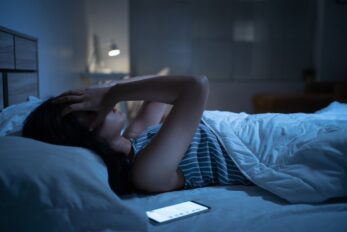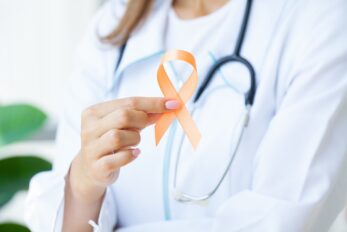How many times have you felt like the burden is on you when it comes to managing your weight and regulating your appetite? “I have no willpower”, “I have no self-control”, “I don’t have the energy” are common thoughts that bog us down when it comes to making healthy choices related to food and portions, and they lead to decreased self-confidence in our ability to change our habits.
Yes, to some degree, we must own our actions and understand there are things in our control we can do to improve our health—but what about the things that are more out of our control? Have you ever taken a step back and considered if poor sleep could be contributing to your inability to control certain food choices and behaviours? Whether you answer yes or no to this question, I hope this blog post will make you think twice!
We all produce various hormones, in charge of specific bodily functions, day and night. Two of these hormones are appetite-regulating hormones: Leptin and ghrelin. Ghrelin sends a message to the brain telling us we are hungry, while leptin sends the opposing message telling us we are full. When we start to wind down for the day at 10:30 p.m., fall asleep peacefully at 11:00 p.m., and cycle through sleep seamlessly until 7:30 a.m. the next day, leptin and ghrelin are in perfect harmony.
So, what happens if we don’t have this picture-perfect sleeping pattern? We start producing too much ghrelin and not enough leptin, causing a hormone imbalance.
Our body is literally sending hunger signals to our brain saying, “Feed me! Feed me!”, while lacking some of those opposing signals saying, “Okay, no more food! I’m full.” This is why, when you don’t get a good night’s sleep, you may feel like no amount of food in the world can satisfy you! Throw in the fact that you probably have no energy to think about making a well-balanced meal or snack, so you grab the first thing you can find to boost your energy: Something niiice and sugary. Oh, and of course some caffeine. You might reach for a Frappuccino, a muffin, flavoured instant oatmeal, or banana bread. Will this give you the boost you need? Sure. But an hour later, your energy will be crashing once again and you’ll be back where you started, cycling through this process over and over.
These processed foods, high in sugar and fat, can then cause trouble as evening approaches, impacting your sleep once more. Appetite-regulating hormones become even more imbalanced, appetite gets more ramped up, energy continues to decrease, healthy choices become even harder to make… Starting to see the problem here?
So, we need to break this cycle. How do we do this? Prioritize sleep. Hormones will start balancing out, energy will increase, and you’ll find it easier to make better choices throughout the day. Sleep well, and bon appetit!






